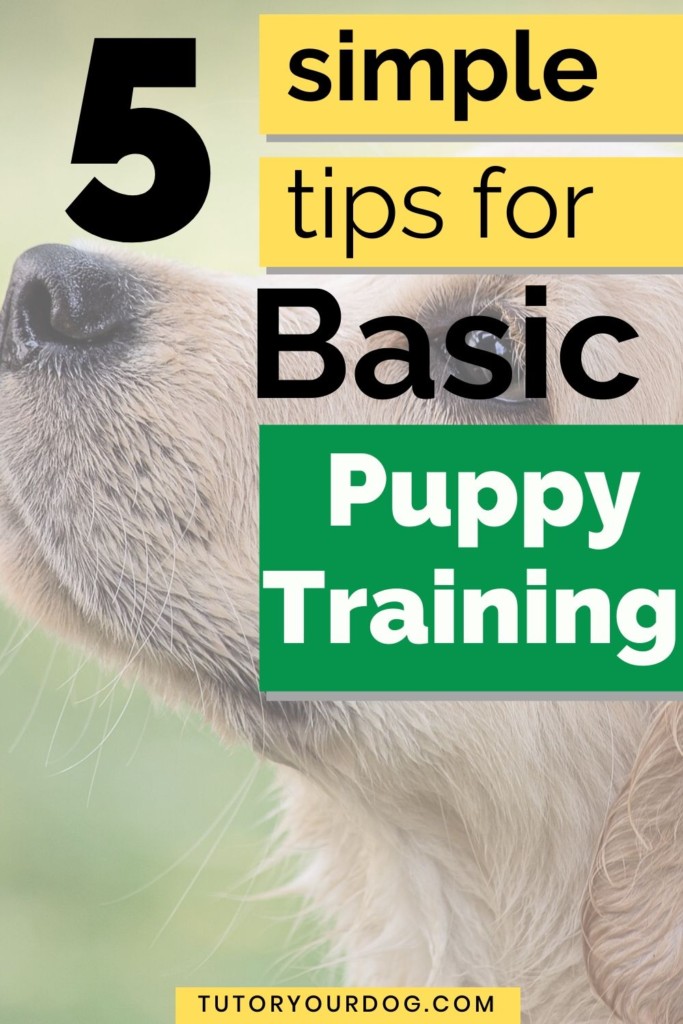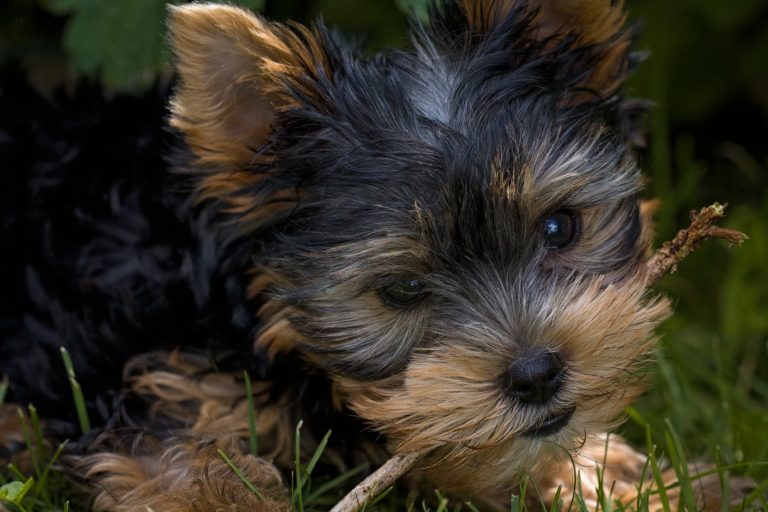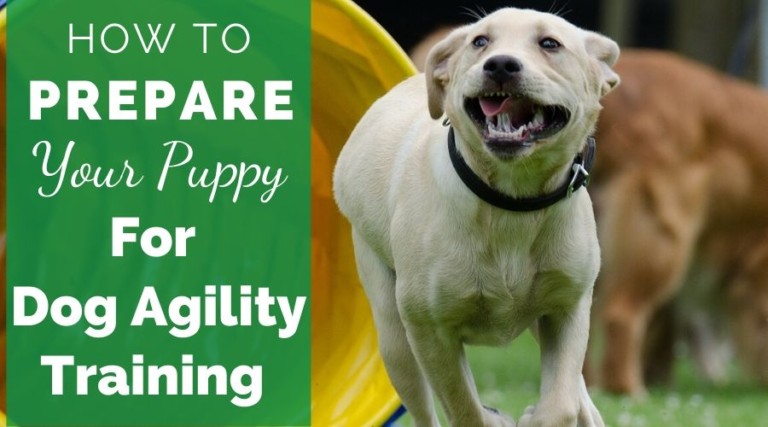{This post may contain affiliate links. This means we may make a small commission at no extra cost to you. This website is a participant in the Amazon Services LLC Associates Program. As an Amazon Associate we earn from qualifying purchases. We only recommend products that we believe will be of value to our followers. Click HERE to see our disclosure for details.}

You’ve brought home your new puppy, it’s such an exciting time for the whole family. But through all of the excitement it’s important to remember that training your puppy is an essential thing to do in order to have a well mannered member of the family. Basic puppy training doesn’t have to be complicated and there are some simple tips you can use to make sure that it’s a positive experience for your puppy.
There are a number of important guidelines that you need to keep in mind when teaching your puppy the basics about good behavior. Exercising the right training techniques is what will make or break your training regimen with your dog.
By following these five important guidelines, teaching your puppy will be easier than ever.

1. Be Gentle
Just like humans, puppies learn best in a stress free environment. If you are yelling at your puppy or constantly scolding him, he will shut down and your training sessions will be useless. Keep in mind that everything is new to your puppy. He is leaving his mother and his littermates and the only home environment that he has known up until now. He is already under enough stress so he doesn’t need any extra stress coming from his training sessions.
Using positive reinforcement training is the most prefered method for training puppies. It is a gentle form of training and let’s the puppy know when he is doing the desired behavior without any harsh corrections. This prevents the puppy from shutting down during your sessions so that you can make the most of your training time.



2. Keep Things Brief
Puppies have short attention spans. Keep your training sessions short and end them before your puppy loses interest. Training sessions that last 10 minutes are long enough for a baby puppy. You can, of course, have several 10 minute training sessions throughout the day but anything longer than 10 minutes per session you risk your puppy getting bored and not paying attention. By keeping these sessions short and always ending on a positive note, you will have your puppy looking forward to his training sessions with you.

3. Exercise Patience
Be patient with your puppy. All puppies learn at different speeds so just because your puppy doesn’t understand what you are asking of him after one or two training sessions or even after one or two weeks, doesn’t mean that he’s not going to get it. Sometimes it just means finding a different way to teach your puppy or maybe it just means that your puppy is still trying to figure out what you are asking of him.
Another thing to keep in mind, if you are not in a good mood, do not work with your puppy. Losing your patience with him can set back your training and harm the positive relationship that you are trying to build with your puppy.
Stay patient and consistent…this is what earns results!
4. Exercise Simplicity
Your training sessions should be kept simple. Teach the basics first such as eye contact, sit, down, etc. Then once your puppy has mastered the basic dog training commands, you can move on and build on those commands. Use a simple step by step system to teach your puppy to create a successful training experience. Puppies who feel successful will be more willing to learn and train. Keep your training sessions casual, fun and upbeat.
5. Build Confidence
Building confidence in your puppy starts by building a healthy relationship with him. Play with your puppy and spend time with him, introducing him to new sights and sounds. In order to grow up to be a well adjusted dog, your puppy needs to build confidence as a young puppy.
So, instead of having your relationship all about training, make sure you spend some quality time with your puppy too. Buidling confidence in your puppy is a main priority in order for him to grow up to be a well adjusted, well mannered member of your family.


These 5 training tips are an important part of any training program. They will help to set a foundation for a positive training experience for your puppy and will help to get better training results.







